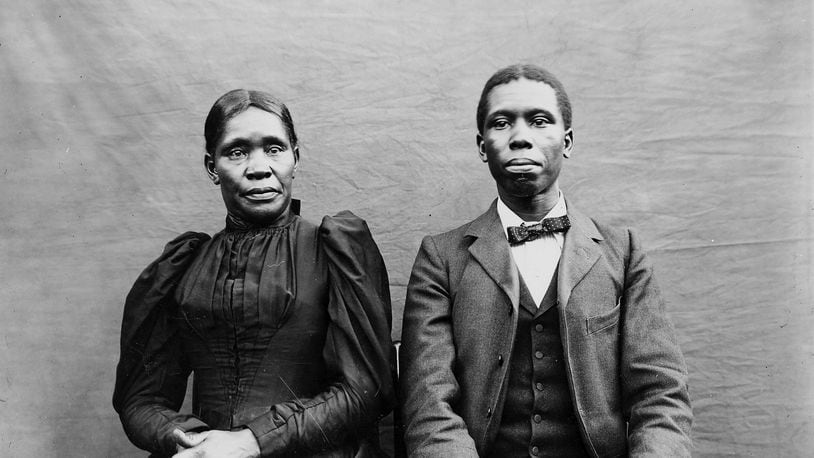So, one of the books I finished is entitled, “Thunder at the Gates.” Written by Douglas R. Egerton, it tells the story of the 54th Massachusetts Infantry, made famous by the 1989 movie “Glory.” It also focuses on its sister regiments, the 55th Massachusetts and the 5th Massachusetts Colored Cavalry. Generally, it also is about the role of African-American soldiers in the Civil War.
Egerton tells a story that is known but not really understood. “Glory,” like many movies about history, is filled with inaccuracies, as accuracy gives way to entertainment value. I’m looking at you, movie makers!
One soldier’s story of interest is that of Joshua Dunbar. He was born a slave in Kentucky in about 1828 and learned the trade of plasterer. He escaped to Ohio via the Underground Railroad. In 1850, he had settled in Wilmington in Clinton County, Ohio. He later continued into Canada as many escaped slaves did, and traveled to Massachusetts in 1863.
He is not well-known — but his son Paul Laurence certainly is, as he is the internationally known writer and poet who was born in 1872 in Dayton to Joshua and his wife, Matilda, who also was born into slavery.
Paul was a high school classmate of Orville Wright. The Wrights printed Paul’s fledging newspaper, “The Tattler.” It only lasted six weeks, although his first book, “Oak and Ivy,” which was published in 1893 by United Brethren Press — now the Centre City Building at Fourth and Main streets downtown — brought him national acclaim.
His parents divorced after a troubled marriage and according to the 1880 census, Paul and his parents lived on West Fourth Street in Dayton. Joshua died at the Dayton Soldiers Home in 1885 and is buried in the Dayton National Cemetery, with honor, in Section E, Row 14, Grave No. 8.
Joshua was a tough guy who enlisted in the 55th Massachusetts Infantry on July 2, 1863, and by Oct. 28, he was discharged because of varicose veins in his left leg. He reenlisted on Jan. 9, 1864, in the 5th Massachusetts Colored Cavalry. He served until Oct. 31, 1865.
Paul went on to national acclaim for his writing, but died young on Feb. 9, 1906, in Dayton. As many Civil War soldiers did, Joshua went back to his life and died in obscurity, while suffering the lasting effects of his service. The story about Paul Laurence and Joshua Dunbar is another Dayton story, this one about a famous son and his father.
About the Author
